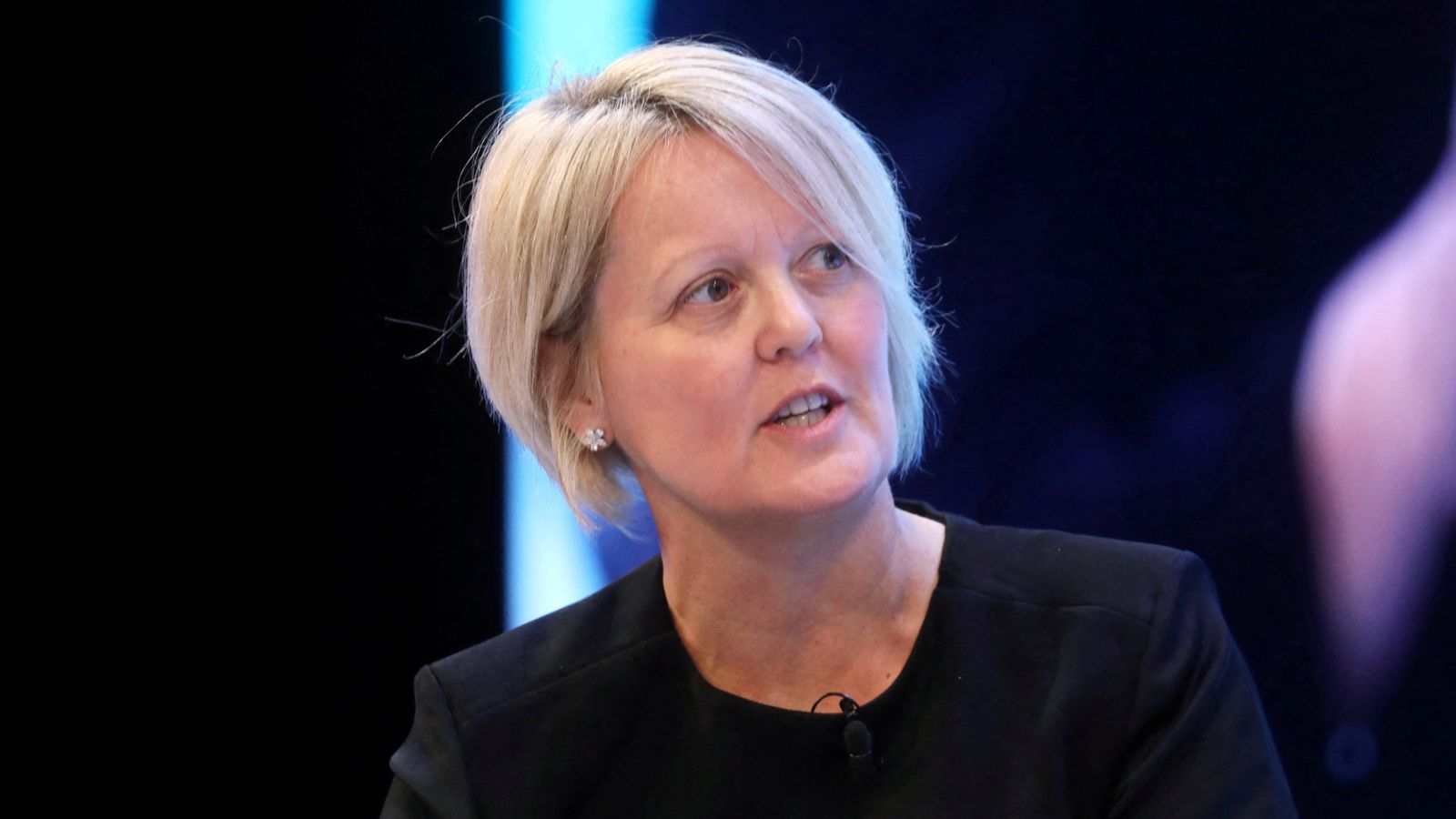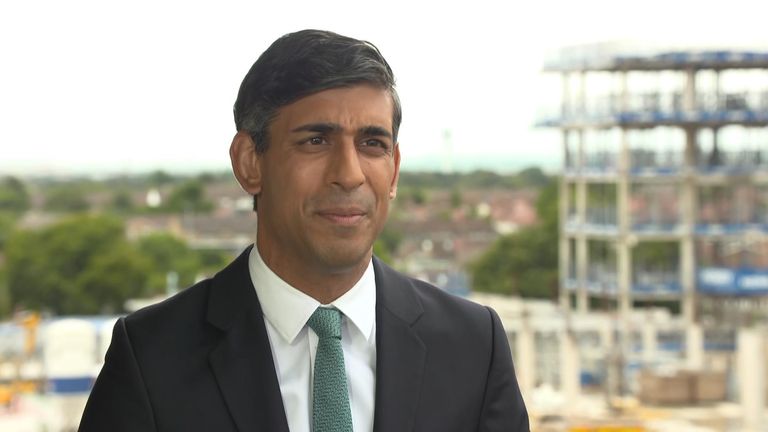NatWest poised to cancel bulk of Rose’s potential £10m payoff


NatWest Group is to scrap the bulk of a possible £10m-plus payout to Dame Alison Rose, its former chief executive, as it tries to draw a line under the debanking row sparked by the closure of Nigel Farage’s Coutts accounts.
Sky News has learnt that the board of NatWest, which is just under 40% owned by British taxpayers, has decided not to pay most of the discretionary elements of Dame Alison’s pay package.
A source close to the bank said the NatWest board’s decision was expected to be announced to the London Stock Exchange on Friday.
While the precise numbers were unclear on Thursday evening, it had been expected that NatWest would adopt a hard line towards its former chief, who stepped down in late July after admitting that she discussed the former UKIP leader’s banking arrangements with a BBC journalist.
The NatWest board’s decision means that Dame Alison will forfeit millions of pounds in unvested share awards, although she is expected to receive a seven-figure sum in the form of her basic salary and fixed share allowance.
Dame Alison’s contract, which incorporated a 12-month notice period, stipulated that she would receive an annual salary of £1.16m, with a further sum of the same amount in deferred share awards.
Her legal fees are also expected to be paid by the bank.
Dame Alison had accrued unvested share awards worth roughly £5m, most of which had been awarded since she became chief executive in 2019.
This week, the Information Commissioner’s Office was forced to make a grovelling apology to Dame Alison after it claimed she had broken privacy laws – an apology which prompted a furious response from Mr Farage.
Advertisement
It emerged following a subject access request by Mr Farage that NatWest employees had belittled the broadcaster and former politician, making a stream of pejorative comments about his views and finances.
Read more:
Nigel Farage and NatWest: A timeline of what happened
Key points from Coutts’ dossier on Farage
Please use Chrome browser for a more accessible video player
1:09
‘The report is an utter whitewash’
Last month, the bank apologised to Mr Farage, acknowledging that it had been guilty of “serious failings” in the way it had treated him.
The decision to “debank” Mr Farage sparked a firestorm in Westminster and forced the City watchdog into an urgent review of the practice across Britain’s banking sector.
According to a public filing by NatWest in August, Dame Alison has been receiving her annual £2.4m package comprising base salary, pension contribution and a share-based fixed-pay allowance since her departure at the end of July.
She was also eligible to be considered for a pro-rata portion of the £2.9m annual bonus and long-term share awards that made up the remainder of her total maximum pay package of £5.3m.
In addition, she held roughly 2.5 million unvested shares in NatWest, which at Thursday’s closing share price of 200.8p were worth in the region of £5m.
That amounted to a theoretical total of more than £10m, although the fact that Dame Alison left midway through 2023 means she would in any case only have been eligible for just over half of the £2.9m in annual variable pay.
Please use Chrome browser for a more accessible video player

0:38
‘It’s about values’: PM on Farage row
The Treasury was expecting to be consulted on the terms of her exit package ahead of an announcement, although it was unclear on Thursday evening whether it had given its consent.
Dame Alison left the bank by mutual consent – where she had been widely regarded to be doing an effective rebuilding job 15 years after its £45.5bn taxpayer bailout – after acknowledging that she had inaccurately briefed a BBC journalist about the reasons for closing Mr Farage’s accounts.
The report, which the broadcaster was forced to amend, suggested that the former UKIP leader did not meet its commercial criteria.
It subsequently emerged that his political views had been instrumental in the decision.
Dame Alison has been replaced on an interim basis by Paul Thwaite, formerly the head of its commercial business.
Dame Alison, the first woman to run one of Britain’s big four London-listed banks, had initially sought to draw a line under the row with Mr Farage by apologising to him, and then by foregoing her bonus for this year.
Within hours, however, signals from Downing Street that it had lost confidence in her leadership prompted the bank to convene an emergency board meeting to rubber-stamp her departure.
NatWest, the Treasury and a spokesman for Dame Alison all declined to comment.